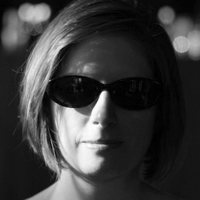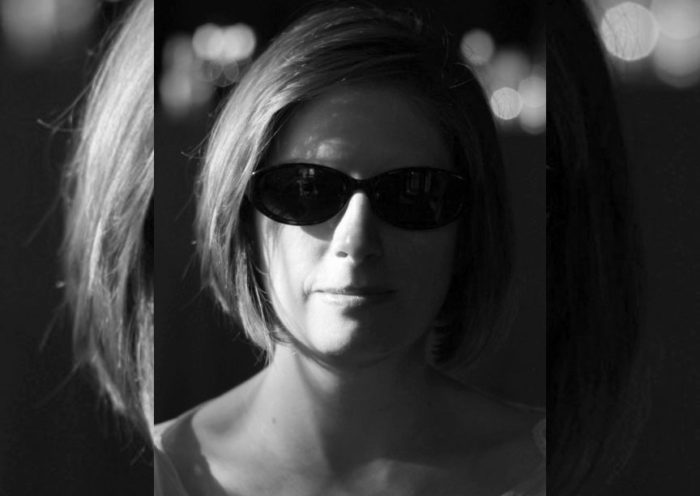Rejuvenation in Fragments
by Jennifer Worrell
Seven years ago, I left a job I thought would be a perfect fit. I turned down an opportunity to work in a grueling catering position—one that could further my burgeoning career as a pastry cook—to work in publishing.
A great deal less taxing physically, working as an assistant cookbook editor not only combined my love of food and books, but provided a chance to sit on my duff at a desk instead of massaging my sore knees every night. Once at the mercy of a fluctuating schedule, my new status as a nine-to-fiver meant designated writing time on nights and weekends.
Though ultimately not the dream job I envisioned, I found contentment in editing copy and testing recipes. The prospect of increased authority, selecting and organizing content, and development of a project from start to finish sparked my ambition toward promotion. Unfortunately, this was another dream about to burst: After a few years of satisfactory routine, my situation changed from pleasant to blandly tolerable to appalling.
Accustomed to working on a dozen or more projects in various stages, I was assigned increasingly fewer until I was down to one or two. Co-workers refused to look in my direction when I passed and ignored me when I said hello. I admit my share of faults: frequently tardy to meetings; often too focused on line edits and not enough on the bigger picture; easily the most introverted person in the department. Dozens of moving parts and my reliably lousy memory assured I’d slip up on a detail here and there. I assumed these flaws caused the change in attitude towards me, yet my reviews ranked positive every year, with only minor suggestions for improvement.
Within four years, Mr. Kennedy*, our editor-in-chief, promoted me to editor. But the head-scratching derision continued. Side-eye glances and stifled snickers followed me through the halls. Clearly some teammates did not agree with my elevated position.
In my first new project meeting as editor, I brought an older book from the warehouse as a sample, but accidentally chose one with one-inch larger dimensions than indicated on the client’s spec sheet. An embarrassing mistake to be sure, compounded by the project manager overtaking the meeting, erasing my voice from the room.
As the common denominator in this equation, I started to believe I deserved all the negativity and questioned Mr. Kennedy’s decision. Still I received no official reprimands, no one-on-one meetings, no specialized training, no demotion.
I dug in my heels, refusing to quit. One day everything would click. Experience would culminate in success. I refused to believe anything less.
The company downsized over the last year of my tenure, repeatedly decimating every department. One afternoon, my cube neighbor slammed a box on her desk and started packing. Another victim of layoffs, she was further infuriated by my obliviousness: While Mr. Kennedy cut her loose, the CEO convened everyone else in his boardroom to disclose the news. All, that is, except me.
I inferred only one meaning to this ostracism: my imminent demise. Why else would they have excluded the person who sat six feet away from their latest victim? I stormed into Kennedy’s office and demanded that if I were next, I’d prefer he get it over with. Instead of hearing the words I both feared and welcomed, I received a look of shock. He insisted my head was never on the chopping block. A beloved member of the team was let go, and again I was spared, with one less advocate on my side.
A more confusing, defeating situation I could not imagine. Why retain an employee they treated as sub-par? If they recognized some potential, why allow me to linger on the cusp of mediocrity? Such bizarre behavior felt like gaslighting.
Unsettled and directionless, my motivation tanked. Pulling into the parking lot, dragging myself up four steps and wending my way through cubicle town, felt like a heavier burden every day. My passion to write fizzled until I rarely picked up a pen.
Though I was safe for the moment, I knew it wouldn’t last. I submitted my resume to any company that fit. A few weeks and interviews later, I accepted an offer while sitting in my car in that same parking lot.
#
Quitting jump-started my motivation to write again, with more than a few pieces finding their way into print. But it took six years to write the manuscript I’m querying now, squeezing in words on lunch breaks and weekends. When I think of how I could have completed a manuscript while I passively waited for my situation to improve, instead of squandering time on Facebook, I still feel a little sick.
Driving back from a research gig for my second novel, I noticed a fence around the old publishing house. The company had moved to a neighboring ’burb a few years ago and the property had been vacant since. A simple brick shoebox, it could have been transformed into any number of businesses. Instead, it was in tatters.
I whipped into a side street and left the car running in the parking lot next door. I tried to get closer through the secret staircase between the two lots, but that too was destroyed. It didn’t stop me from ducking between and under the construction fences to get a better look, my breath halting as if I stood in icy water.
The canopy over the front door hung in rags. Part of the roof had caved in. Pipes jutted out of the remaining walls, and twisted wires dangled motionless despite the breeze. The few remaining windows were reduced to jagged shards. A single plastic blind hung in an empty frame and snapped against the metal.
I peeked into what used to be a rather spectacular vestibule. A gaping hole replaced the tropical fish tank. A pile of rubble filled the waiting area, a pristine porcelain sink from the lobby bathroom upended like a hat. And hanging above it all, the crystal chandelier, perfectly intact.
I haven’t met a ghost and don’t intend to seek one out, but I felt a presence in this grave-still, dusty lot. The fences were tall enough to keep noise out and me from being seen from the street, yet I had the sense of being watched. From the surrounding condos, I wondered if anyone noticed me from their second-story windows. Or was I as invisible as I was six years ago?
Though the outer walls were depleted, I could make out where the art design room used to be. My “office” was on the other side and one cube row north; I could still walk it in my memory. I felt a strong urge to touch the column that separated my file cabinets. Witness my space stripped down to a bare cement floor. Breathe in the absence.
I wanted to smash the remaining windows until the parking lot glittered like diamonds.
Asbestos remediation warnings kept me from venturing closer, as did the uncertain stability of the roof. The last thing I needed was a rusty nail jamming into my sandal or a scrap of metal slicing my calf.
Like an absurd joke, bricks propped open the side entrance. I wanted to reach up and gently close it. The building might be half down, but it would be me who shut the door for the last time.
I settled for hovering around the site, soaking in the scene, leaving no proof I was ever there.
#
Seven years have passed since I gave myself permission to breathe. I’m at home in my new surroundings at a university library, respected and valued by colleagues. I’ve earned a seat at the table on a team where everyone’s voice matters.
Co-workers nudge me about my manuscript, update me on calls for submissions, and include me in conversations about the writing life, even if our respective genres have no connection. Work is no longer synonymous with torture; the common denominator re-defined.
The publishing house lives on at its new location. That part of my past only dimly enters my mind; less a significant detail than a narrative blip.
But seeing the old workplace on its last legs, bones poking through the mangled flesh, is the way I want to remember it: nothing more than a foundation and a handful of stories.
BIO

Jennifer Worrell got hooked on writing stories in kindergarten using mimeographed prompts. Her supplier, Mrs. Davenport, kept a stash of the Purple Monster handy for a quick fix. Though she kicked the habit for a short time, Jenny’s writing problem has spiraled out of control. But don’t worry. She can quit whenever she wants to.
Primarily a fiction author, she’s working on two novels and a stream of short pieces in multiple genres. You can find out more at JenniferWorrellWrites.com or on Twitter or Facebook @JWorrellWrites.














